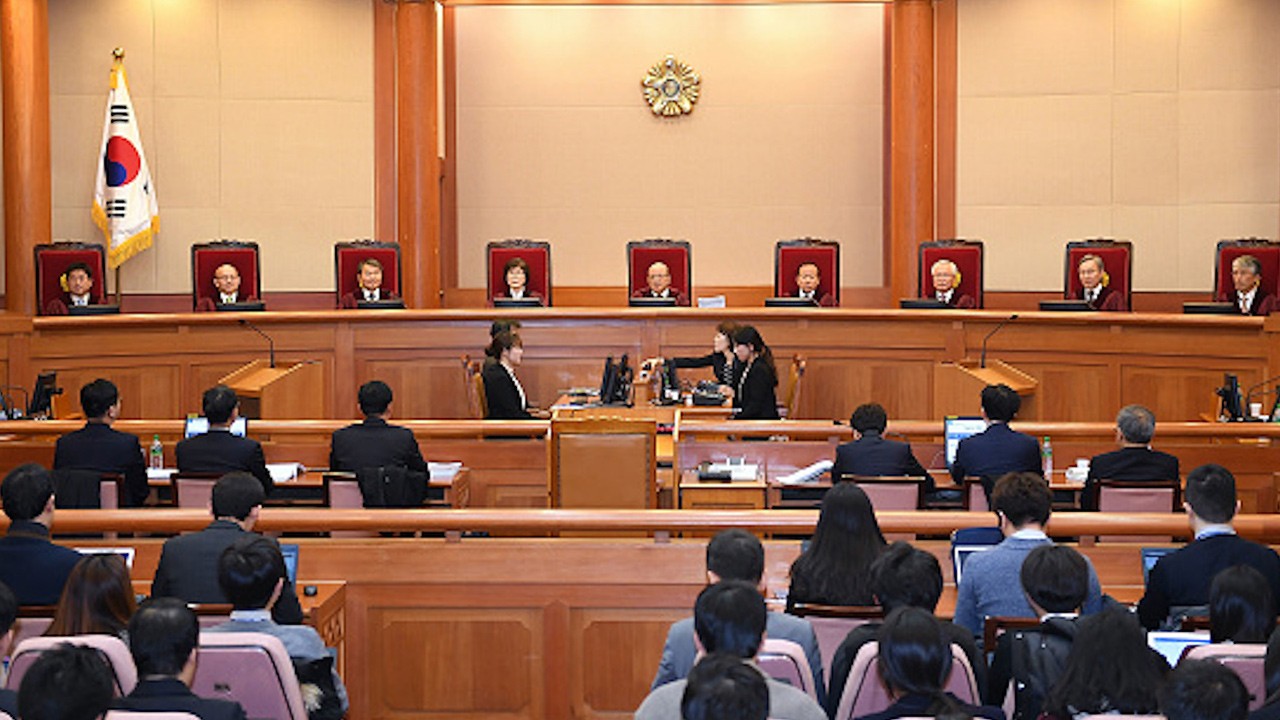“Given the current state of Korean women’s human rights, it is obvious that the major subject of the presidential election should be feminism,” psychologist Han Ji-young told VICE World News. “But now, the presidential election is turning into a competition to determine who hates and discriminates against women the most.”
“[Yoon’s] pledge of abolishing the women ministry is what I have been waiting for. I think the ministry has done nothing and wasted our national budget.”
Conservative candidate Yoon Suk-yeol waves to supporters at a rally in Seoul. Photo: Jung Yeon-je / AFP

Supporters of Lee Jae-myung from the ruling Democratic Party. Photo: Jung Yeon-je / AFP
“The 2022 presidential election is our most misogynistic in history.”
The presidential candidates (from left) Sim Sang-jung, Yoon Suk-yeol, Ahn Cheol-soo, and Lee Jae-myung. Photo: JUNG YEON-JE / POOL / AFP
Main opposition presidential candidate Yoon Suk-yeol. Photo: JUNG YEON-JE / POOL / AFP
Han, the psychologist, referred to local media reports about prominent leaders of anti-feminist groups allegedly engaging in back-handed deals with presidential candidates, including “manipulating comments on election-related articles” and bringing their members to election rallies in exchange for them pushing an anti-feminist agenda.“They are trashing the votes of women because misogyny is [widespread] in our deeply patriarchal society.”
Conservative candidates Yoon Suk-yeol and Ahn Cheol-soo. Photo: KIM Min-Hee / POOL / AFP
South Korean soldiers wait in line to cast their ballots. Photo: Jung Yeon-je / AFP

